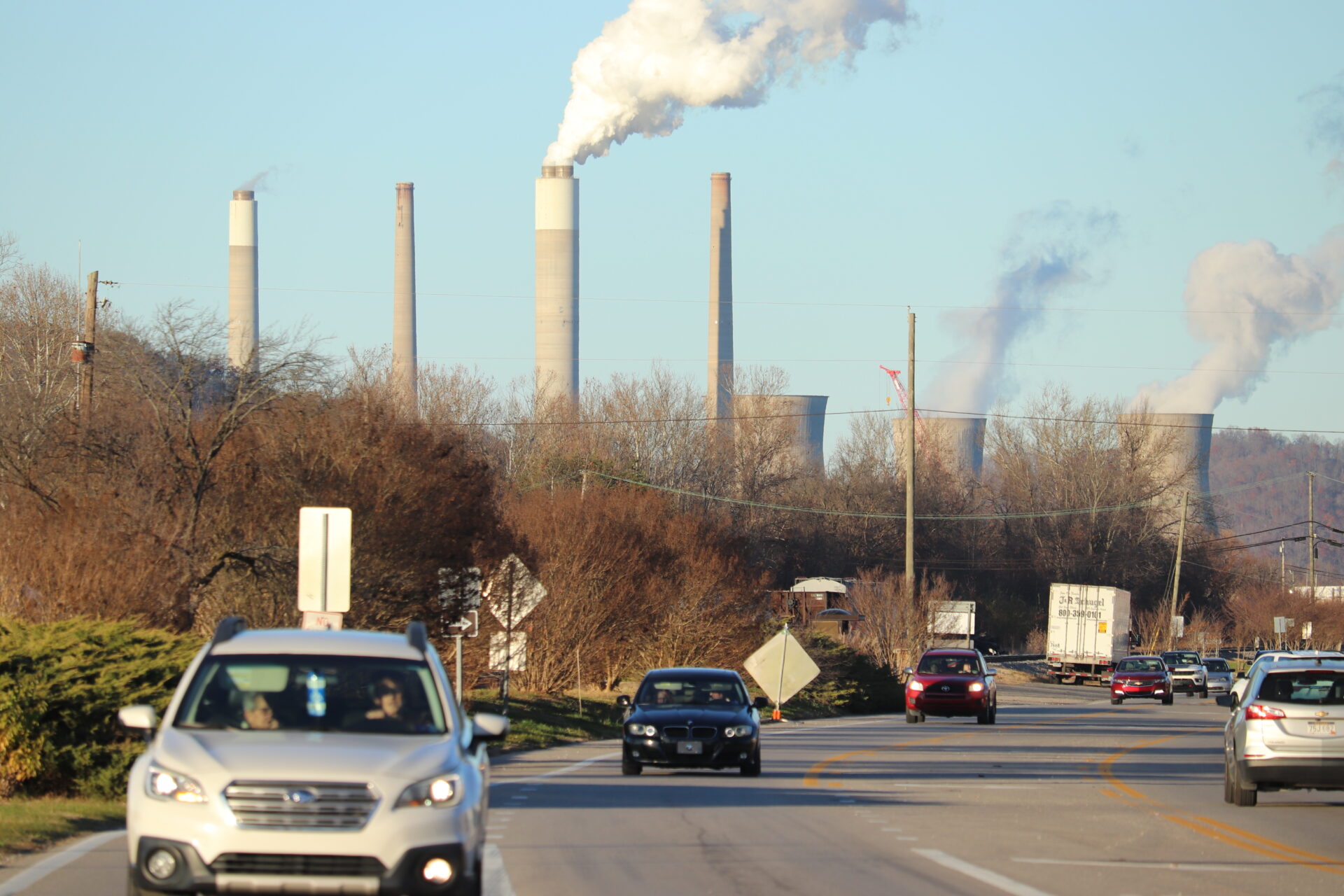“If it’s good enough to wash coal, it’s good enough to wash me.” That’s a tweet that supposedly went out from the West Virginia Coal Association in…
“If it’s good enough to wash coal, it’s good enough to wash me.” That’s a tweet that supposedly went out from the West Virginia Coal Association in response to the Elk River chemical spill. No such remark exists on the association’s feed today, but the sentiment sparked reactions from many, including one southern W.Va. health campaign. In the aftermath of the MCHM spill, they’re bringing up questions about certain coal mining practices.
Beckley native Bo Webb is the Campaign Director of the Appalachian Community Health Emergency campaign (ACHE). His hope is that the Elk River chemical spill will bring much needed attention to communities where chemicals like MCHM are regularly used.
“Those of us who live in Mountain Top Removal areas, we’ve been putting up with and dealing with these toxins for years,” Webb says.
For Immediate Release – Jan. 14, 2014 Appalachian Community Health Emergency campaign responds to W.Va. chemical disaster Contacts: Bo Webb, ACHE coordinator Bob Kincaid, ACHE campaign Naoma, W.Va.—“If it’s good enough to wash coal, it’s good enough to wash me.” With that dismissive tweet regarding the ongoing disaster in which the public water supply of 300,000 people was poisoned, the West Virginia Coal Association demonstrated once again the disdain in which they hold the health and well-being of the people of West Virginia. 4-Methylcyclohexane Methanol (MCHM) is used in the coal preparation process. Leaking thousands of gallons of MCHM into the Elk River, Freedom Industries of Charleston, W.Va. poisoned the water supply of hundreds of thousands of West Virginians late last week. It was the first time most people outside the coal business had ever heard of the chemical, but MCHM is used every day in the mountaintop removal coal mining process. MCHM’s daily use in Central Appalachia’s mining communities is done with no warning to residents. A number of toxins, including MCHM and others even worse, are used in processing coal, many of which are pumped into multi-billion gallon storage lakes of toxic waste that loom above communities like Whitesville, W.Va., hidden behind faulty, sometimes leaky, otherwise frightful earthen dams. A similar dam gave way killing 125 people and leaving 4,000 homeless in the February 1972 Buffalo Creek disaster. The current 7,500-gallon spill would be dwarfed by a dam break on any one of these multi-billion gallon ponds. “The federal water emergency in nine West Virginia counties is putting people's lives and health in immediate danger. But that is just one small part of the larger story of mountaintop removal coal mining and the devastating impact it has on the land, water, lives and health of the people in the region,” said Bo Webb, Appalachia Community Health Emergency Act (ACHE Act) campaign coordinator. “Mountaintop removal coal mining is creating a broad public health emergency in the regions where it is practiced. That is the untold story.” As a result of mountaintop removal coal mining, Americans in Central Appalachia’s Mountaintop Removal Zone suffer a wide variety of diseases far in excess of the rates at which they are suffered in the general population. Communities near mountaintop removal have a 42% higher rate of birth defects, 4,000 excess deaths per year, up to twice the cancer rate, and higher rates of heart, lung, and other diseases. The ACHE Act, HR 526 in the US House of Representatives, seeks to break the silence on what is poisoning innocent people living near mountaintop removal sites and their associated plants and processes. “I hope people will finally see how badly we need the ACHE Act,” noted Bob Kincaid of the ACHE campaign. “It’s the only law in Congress that would help people learn what kind of toxins they live with in mountaintop removal areas. We deserve to know what is poisoning us. We deserve to have it stopped.”
The ACHE campaign formed a year ago in January when organizers decided the only way to address health disparities related to Mountain Top Removal mining was to focus legislative efforts at the federal level. Since then they’ve been working on the ACHE Act designed to help protect communities trying to coexist with industry.
“There are 4,000 excess deaths per year in counties that produce coal by the mountain top removal method,” Webb says. “To me that’s alarming given that there’s only approximately 7,000 workers on these sites.”
Webb points to multiple peer-reviewed studies that demonstrate significant health disparities in communities in and around large surface mining operations saying that there’s been significant resistance from legislators in acknowledging the findings—acknowledgement that might lead to a better understanding of industrial practices. Webb says slurry impoundments are not least among them.
“According to the DEP, these dams are designed to seep. Imagine that,” he says. “So if they’re seeping, they are seeping the liquids. And we know of numerous chemicals in there. This is a real brew of toxins that are in these dams.”
In fact, he worries that the very regulations enforced to “scrub coal clean” may be inadvertently adding dangerous chemicals to the environment in these areas.
Officials at the West Virginia Coal Association didn’t immediately return a call seeking comment.
